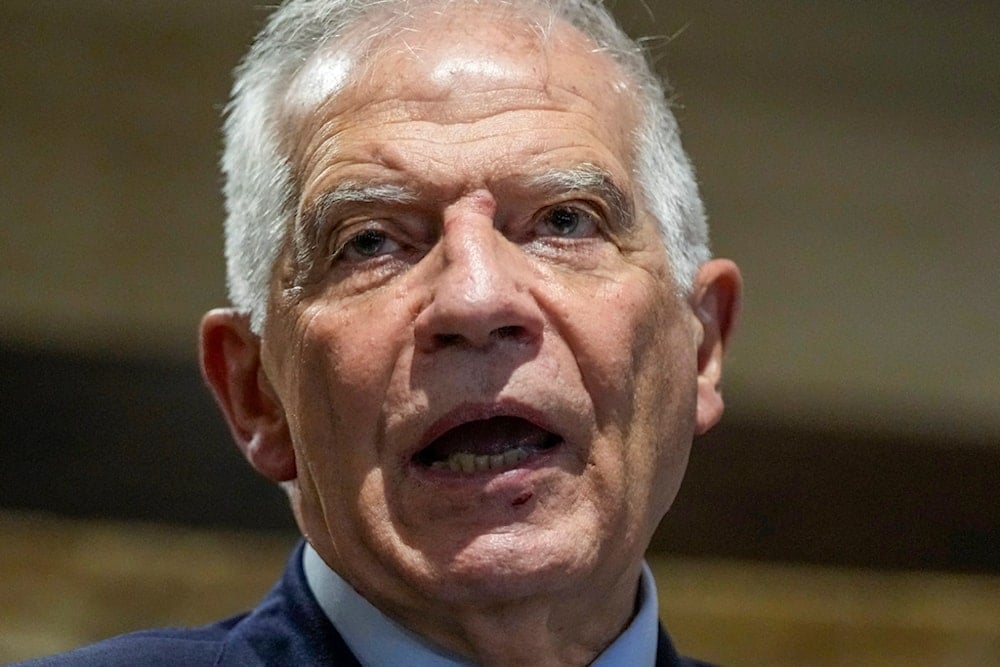EU trade deal shows submission to US pressure: Borrell
Josep Borrell condemned the new EU-US trade deal as a political and economic capitulation to Washington, arguing it undermines Europe's strategic autonomy, deepens energy dependence, and disproportionately benefits American exporters.
-

European Union foreign policy chief Josep Borrell gives a statement to the media after his meeting with Lebanese Parliament speaker Nabih Berri, in Beirut, Lebanon, Sunday, Nov. 24, 2024. (AP Photo/Hassan Ammar)
Former EU foreign policy chief Josep Borrell delivered a scathing assessment Monday of the latest EU-US trade deal, warning that the terms not only damage Europe's economic interests but expose its deep political subordination to Washington.
"From a political standpoint, the result is very bad. It gives the impression of weakness and submission to [US President Donald] Trump's demands. And it shows Europe can hardly be considered a strategically autonomous actor," Borrell told EUobserver.
His remarks follow the July 27 announcement of a new trade agreement between European Commission President Ursula von der Leyen and President Trump, which imposes a 15% tariff on most EU exports to the United States. The deal, portrayed by Brussels as the "least bad option," leaves in place punitive 50% US tariffs on European steel and aluminum, first imposed during Trump's previous term and still unresolved. Although officials hint at possible reductions in the future, no firm commitments have been made.
Borrell dismissed the Commission's framing of the deal, attributing the outcome instead to a "poor strategy" and "surrender tactics." For him and a growing number of critics, the agreement reflects a collapse in European negotiating confidence and a subtle retreat from any pretense of independence.
Energy dependence deepens
The agreement's energy clause has raised further alarm. Under the deal, the EU committed to purchasing $750 billion worth of US energy products, including liquefied natural gas, a move that critics say locks Europe more tightly into American economic orbit. This decision comes at a time when many within the bloc are calling for diversification away from foreign-controlled energy sources, not deeper dependency.
Markets responded accordingly. The euro dropped 1.3% following the announcement, and investor confidence in European trade resilience took a hit. French officials reportedly called the deal a "dark day for Europe," while Berlin warned of long-term damage to industrial competitiveness.
Analysts point out that the agreement disproportionately favors US exporters while failing to resolve the very barriers that triggered trade tensions in the first place. Observers from the Council on Foreign Relations and think tanks like CEPS have described the deal as "asymmetric and unbalanced," offering temporary relief for Brussels while entrenching structural advantages for Washington.
A report from Société Générale went further, characterizing the outcome as a capitulation to US pressure that underscores Europe's eroding leverage in global trade.
Read more: Europe slams Trump trade deal as humiliating concession

 3 Min Read
3 Min Read










